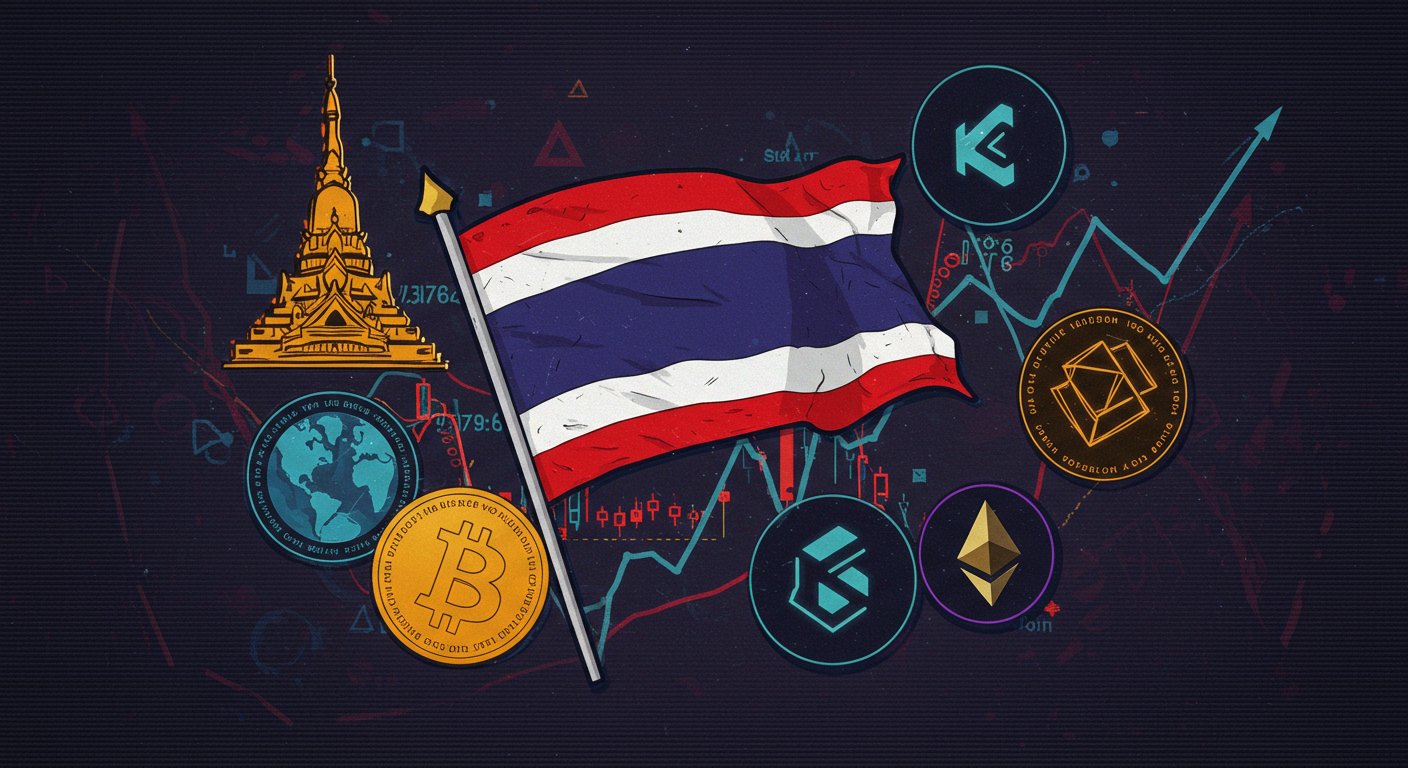
KuCoin Joins the Thai Crypto Fray
In a strategic move to further expand its footprint in Southeast Asia, cryptocurrency exchange KuCoin has officially entered the Thai market. The company announced its arrival on April 23, marking its latest venture into a region known for its burgeoning crypto adoption. KuCoin’s foray into Thailand comes on the heels of a regulatory push by the Thai Securities and Exchange Commission (SEC), which has been actively licensing digital asset exchanges. This has led to a growing number of players vying for a slice of the Thai crypto market.
KuCoin‘s entrance follows the rebranding of ERX Company Ltd, Thailand‘s first SEC-supervised digital token exchange, as KuCoin Thailand. This move signifies a strategic partnership between KuCoin and ERX, with KuCoin operating under the existing ERX license. The exchange is offering a range of digital assets and related products to Thai users, with the KuCoin TH app now available on both Android and iOS.
Facing a Competitive Landscape
KuCoin enters a competitive arena, with eight other companies already licensed by the Thai SEC to operate as crypto and digital asset exchanges. These include notable players such as WAAN Exchange, Gulf Binance, Thai Digital Assets Exchange, InnovestX Securities, GMO-Z.com Cryptonomics, Upbit Exchange, Bitkub Online, and Orbix Trade.
The market is dominated by Bitkub, boasting a daily trading volume of around $70 million, according to CoinGecko. KuCoin‘s global platform, however, claims a significantly larger daily volume of $3.8 billion. This gives KuCoin a potential edge in terms of liquidity and market depth, but it will need to navigate the established presence of Bitkub and other local players.
Navigating Thai Crypto Regulations
While Thailand has been a hub for crypto trading, using crypto assets for payments was outlawed by the central bank in 2022. The country is currently exploring the use of Bitcoin for tourist payments in a pilot program on the island of Phuket, which is yet to be launched. The Thai government is also pushing for the development of a tokenized securities trading system.
Despite this, Thai financial regulators have been actively cracking down on foreign peer-to-peer crypto platforms in an effort to combat scams and money laundering. This regulatory landscape poses challenges for KuCoin as it seeks to establish itself in the Thai market.
Meanwhile, KuCoin is currently involved in a legal battle with the US Commodity Futures Trading Commission (CFTC), facing accusations of violating the Commodity Exchange Act. The company is seeking a settlement with the CFTC, hoping to resolve this issue before making any further moves in the US market.
KuCoin’s entry into the Thai crypto market signifies a growing trend of global exchanges seeking to expand their reach into Southeast Asia. The region, with its rapidly increasing crypto adoption, presents a significant opportunity for exchanges like KuCoin. However, the challenges of navigating a competitive market and evolving regulatory landscape will require a nuanced approach from KuCoin as it seeks to establish itself as a leading player in the Thai crypto ecosystem.


